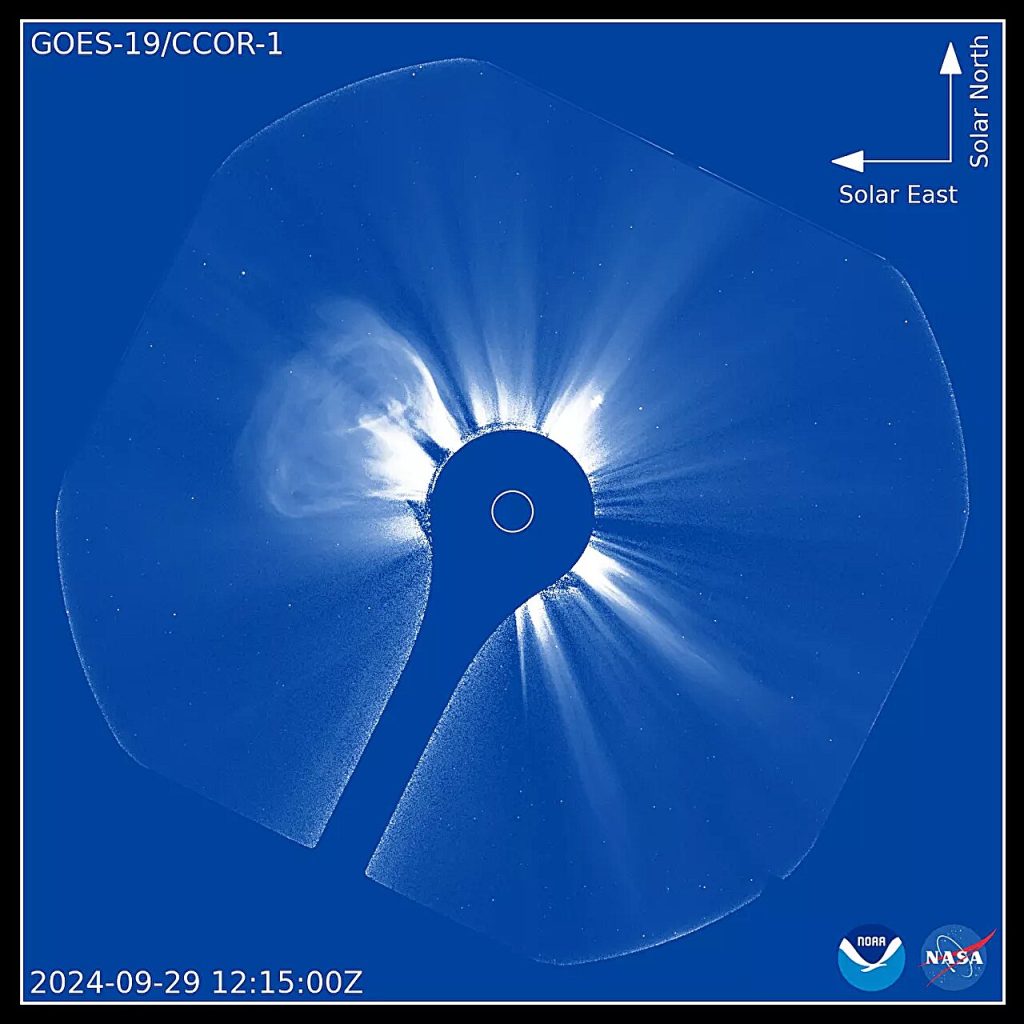NOAA today shared the first images from the Compact Coronagraph (CCOR-1), a powerful solar telescope onboard the new GOES-19 satellite. CCOR-1, the world’s first operational, space-based coronagraph, began observing the sun’s corona, the faint outermost layer of the solar atmosphere, on September 19, 2024.
CCOR-1 monitors the corona to forecast coronal mass ejections (CMEs), which are large expulsions of plasma and magnetic fields from the sun that can produce space weather impacts on Earth.
When directed toward Earth, CMEs can cause geomagnetic storms and other types of space weather that can impact satellites, navigation systems like GPS/GNSS, astronaut safety, aviation communications and electric power grids. On Earth, the familiar aurora displays are the visible manifestations of these storms interacting with Earth’s upper atmosphere.
CCOR-1 delivers uninterrupted coverage of the corona with a new image every 15 minutes. CCOR-1 uses an occulting disk (the dark blue circle at the center of the video) to eclipse the sun (depicted as the smaller white circle) so we can view the extremely faint corona.
Credit: NOAA Headquarters
This first CCOR-1 video shows a clearly defined CME emerging from the east limb (left side) of the sun around the 10:00 time mark, with Universal Time (UT) shown at the lower left. The sun also dazzles with its small and large streamers, bright radial structures along which the solar plasma travels steadily outward. The CME explosions bend and sometimes disrupt the streaming plasma, buzzing past it at speeds of hundreds to thousands of miles per second.
CCOR-1 is the first in a series of NOAA coronagraphs. Similar instruments will be placed on the sun-Earth line and around the sun, as part of NOAA’s Space Weather Follow-On and Space Weather Next programs, respectively.
GOES-19 is currently undergoing post-launch testing and checkout of its instruments and systems. After GOES-19 is assigned the operational role as NOAA’s GOES East satellite in spring 2025, NOAA’s Space Weather Prediction Center will begin using CCOR-1 observations to inform and improve its forecasts and warnings of impending space weather.
Provided by
NOAA Headquarters
NOAA releases imagery from world’s first operational space-based coronagraph (2024, October 22)
retrieved 22 October 2024
from https://phys.org/news/2024-10-noaa-imagery-world-space-based.html
part may be reproduced without the written permission. The content is provided for information purposes only.

